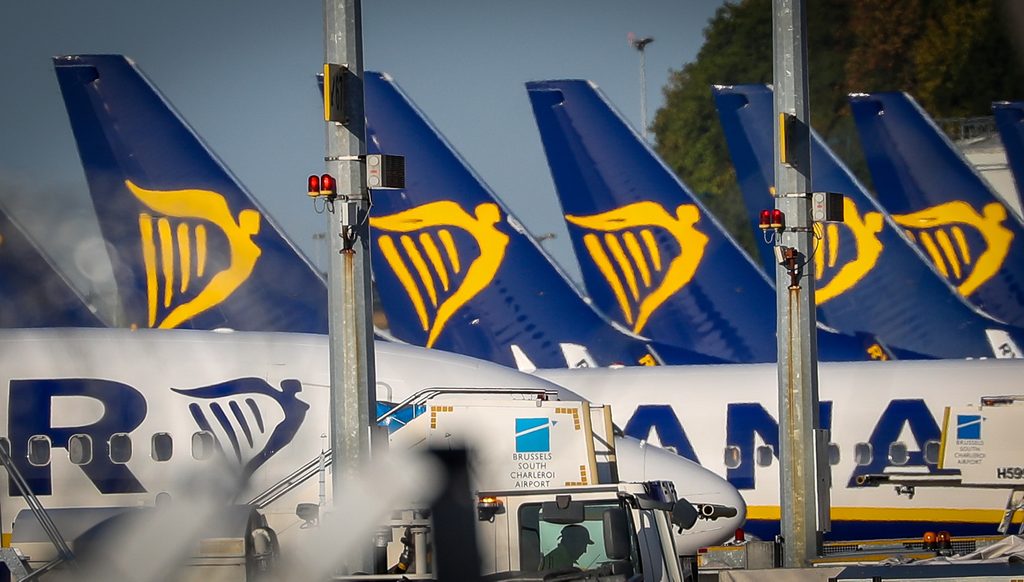Irish low-cost airline Ryanair has called on the new Federal Government in Belgium to reconsider its plans to increase aviation taxes. It argued this "excessive" tax hike would further endanger the country's connectivity.
Belgium introduced a federal flight tax in 2022, requiring all people travelling by aeroplane to pay an extra cost to encourage alternatives to short-haul flights such as trains. Depending on the distance of the flight, there is currently a tax of €2, €4 or €10 per passenger with short-haul flights up to 500 kilometres being the most heavily taxed. This system generated around €42 million last year.
The new De Wever government, however, is changing the system. In its coalition agreement, it wrote that the government is simplifying the boarding fee for both intra- and extra-EU flights. Passengers on both flight types will pay €5 per person per ticket. The existing fee for a short-haul flight (€10) is not changing.
Ryanair called on the government to scrap its plans to increase the tax on Friday. "This would signify a tax increase of up to 150% for ordinary passengers," the company noted in a press statement.
'Bad for Belgian economy'
The airline argued that this "excessive" tax hike would have a detrimental impact on Belgium's connectivity, traffic, jobs, and economy, especially combined with Brussels Airport's "already ludicrously high charges" (it says charges here have increased by over 20% since the Covid-19 pandemic).
Ryanair CEO Michael O'Leary had previously said the airport in Zaventem "continues to stagnate and has failed to recover its pre-Covid traffic due to its expensive and rising fees, and its failure to compete for traffic recovery or growth." It urged the government to replace this tax increase with a heftier tax on connecting and private passenger flights, which it says cause the most pollution and carry a mere fraction of the passengers.
Brussels Airlines, meanwhile, responded that a tax on aviation, without a guarantee that the collected money will be used to make the sector more sustainable and without limiting the consequences for competitiveness, is not the right approach.
"Only a fraction of the billions of euros collected from airlines worldwide have been reinvested in making aviation more sustainable," Joëlle Neeb, Senior Media Relations Manager at Brussels Airlines, said in a statement. "Passengers deserve to see their contributions helping to decarbonise their journeys." She added that, unlike other transport sectors, European airlines are already subject to national levies and taxes to which no other transport sector is subject.
The company itself is focusing on fleet renewal to reduce emissions. Neeb also argued that more work needs to be done to increase the use of Sustainable Aviation Fuel (SAF). For now, this is limited, mainly due to its high price. "To become truly carbon-free, the emphasis must be on technological progress, production of SAF, intelligent economic measures, improved air traffic management and adequate financing and incentive measures."
The Brussels Times has contacted Brussels Airport for a response to Ryanair's statement.

